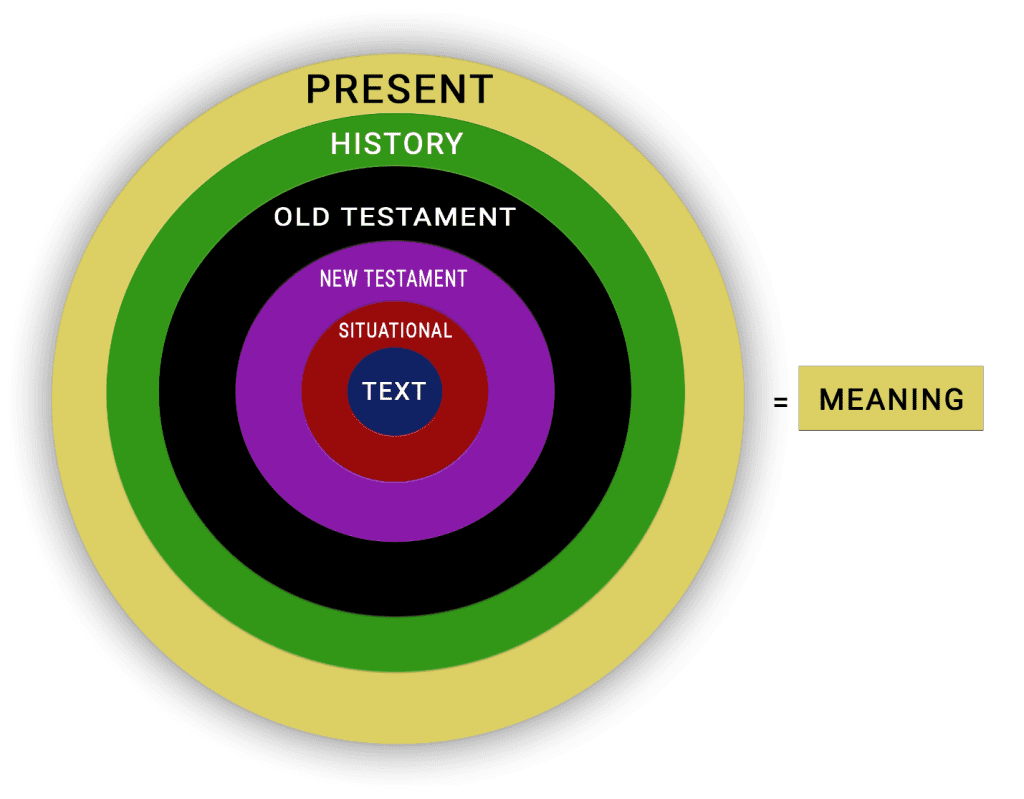In the realm of progressive thinking, issues with evangelicalism often stem from questions of authority and interpretation. That is, to what extent does the Bible speak for God and how do we as humans interpret such a book? Unfortunately, there is very little in terms of hermeneutics when it comes to progressive thinking. Part of the reason for this is that progressives are often suspicious of methods that constrain the reader in their interpretation.
In my book UNenlightenment I propose a new hermeneutic theory that avoids methodology by employing the notion of perspective. I cannot delve fully into it here due to length restrictions therefore, for a more detailed explanation pick up a copy of UNenlightenment.
The Old Way: Systematics
Many moons ago I attended an evangelical university. One of my first courses was on how to read and understand the Bible. Even though I had only been a Christian for a few years I was immediately suspicious of what I was being taught in this class. The promise of inductive reasoning was quickly extinguished by the numerous interpretive activities the professor made us practice. He would often emphasize “look and observe”. We would then be given an innocuous passage and asked to make as many observations about that passage as we could. This would come in handy later as we would use that information to come up with an interpretation of the passage.
The crux of systematic theology (the methodology used by most evangelicals) is to arrange biblical verses and passages into some collective whole whereby doctrine can be bolstered and certain theologies can be asserted with confidence. Proof-texting is oftentimes used to reinforce these claims. Ask Calvinists why they believe in predestination and they will go through their limitless arsenal of Bible verses that support their view. The fancy term for this approach is called propositionalism (a head nod toward George Lindbeck).
Built within systematic methodologies is the assumption of inductive reasoning. That is the idea that we can extract generalized principles from specific ideas. This is not a terrible way of reasoning, but it’s not as often employed within evangelical theology as they often boast. The reason is the doctrine of inerrancy. Inerrancy is often used as a trump card in systematic theology, overshadowing any hope of a true inductive method. The doctrine of inerrancy is often used as a fallback when other interpretations fail to capture the meaning of the text. Inerrancy also eliminates any possibility of critical thinking because systematic theology begins with this questionable (probably circular) presupposition. Ultimately, inerrancy overshadows any hope of having a true inductive methodology.
No doubt this is an overly simplistic definition of systematic theology, but I think it captures the overall spirit of what is taking place and why progressives in particular are suspicious of systematic methodologies.
From “Systems” to “Perspectives”
What I propose is that we move away from systems and methods altogether. The Bible is too nuanced and vast to be captured in a single methodology. The idea I am proposing is called Narrative Perspectivism. Narrative Perspectivism utilizes two important ideas when approaching scripture. First, it utilizes the theological perspective of narrative theology which has been a staple of neo-orthodoxy since the middle of the 20th century. The narrative approach to interpretation begins with two simple premises.
First, the Bible consists of varying types of literature that all must be interpreted within their own context. Second, the meaning of the various types of literature contributes to the overall story that is taking place within humanity. It is a story of humanity’s discovery of the self as well as of the self’s discovery of the divine. It’s a story of how a loving God transcends time to be with the people it created. It is a story of how this passionate God will do anything to restore the broken relationship that exists between humanity and itself. God pursues us because we are worth something to God.
The second aspect that this approach utilizes is the idea of perspectivism. Perspectivism is a philosophical category that urges the individual to consider various perspectives when interpreting meaning. If, for example, we believe that in the larger scheme of things the Bible is, in some way, a communicative framework (or some form of revelation) between God and man, then we must also believe that in God’s wisdom that he took into consideration the human’s perspective when approaching (and writing) these texts.
As we asserted before, the Bible is testifying to various encounters that humanity has with God from the human perspective. It’s not until we compile these stories and lift the lens of time to ascertain what the divine perspective might be. This is what Jesus was urging the religious leaders of his time to do. This is why Jesus’ perspective is so unique to these Torah scholars. Jesus’ message to these leaders was the same as our message to evangelicalism. That is, you are missing the point when you extract static propositions from a text that were intended to be understood dynamically. If you take the story out of the story you are left with nothing and you are forced to manufacture conclusions. If you take the context out of various passages you are left with a vacuum of meaning. If we are truly concerned with truth, we will look at these texts with the rationality and common sense that have been given to us.
The Formula for Narrative Perspectivism
Narrative Perspectivism utilizes various “perspectives” that the reader can use to understand the narrative and metanarrative ideas. The graphic below referred to as the Concentric Circles of Context, illustrates what these interpretive principles look like:
Below I am including brief explanations for each stage. For a more detailed understanding see UNenlightenment Appendix A. Each stage is an attempt at raising the lens of the story in order to gain a greater perspective.
Stage 1: The Text – To understand the meaning of the text the following perspectives must be understood. What type of literature is the passage contained in? How does someone derive meaning from this specific form of literature (is it mythical, poetical, biographical, historical, etc.)
Stage 2: The Situation – There is always a situation or reason as to why something is being written. This is the foundation for attempting to derive any meaning from a text. What is the situation that the writer was in while writing this text? Who were they writing to?
Stage 3: The Larger Context (OT or NT) – As we lift the lens we must understand the larger testamental context. If the passage is in the NT we should look to the OT to find contextual value. For example, Jesus is almost always speaking from the context of the Torah and the Prophets. Many of the NT writers speak out of this same context. Moreover, understanding the OT correctly is vital for a proper reading of the NT – especially understanding the wisdom of Jesus.
If someone is reading the OT, then understanding the historical placement of that writing is important (ex. understanding Genesis in light of the whole Torah, or understanding the flood in light of other historical sources).
Stage 4: History – This stage is somewhat similar to the larger context, it merely extends that context beyond the scope of the Bible to the history of the time and beyond. For example, we might ask the question what did the early church think of this passage and how does that help us better understand what might be happening? We’re not saying that the early church has all of the answers, but what we are doing is taking advantage of people who are closer in time to the writers and therefore, might have a perspective that escapes us from the plain reading of the text.
Stage 5: The Present – The final question or perspective for us to consider is our own. We are presented with one important question: is the text contextual or universal? In other words, does the meaning of the text have any use for us today, or was it simply important only to the readers of the time? No doubt, this is where much of the theological debates spring from. However, if the previous stages have been done properly you can feel confident that you have done your part in understanding the intended meaning of the text.
Some Concluding Thoughts
Narrative Perspectivism is a work in progress. I am hopeful that people will view this as an open-source theology and continue to contribute to the work that is being done. Having a framework or perspective through which we can view scripture is an important next step in the evolution of progressive theology. It’s important to take this next step because there are many progressive Christians who are wandering aimlessly in search of a faith that is rational, true, and inspiring. Showing them how they can approach scripture, instead of simply discarding it, is an important step in that process.
You can view my UNenlightenment YouTube Channel HERE
You can view my UNenlightenment Podcast HERE
You can follow me on FaceBook HERE
You can purchase the book UNenlightenment HERE.
















